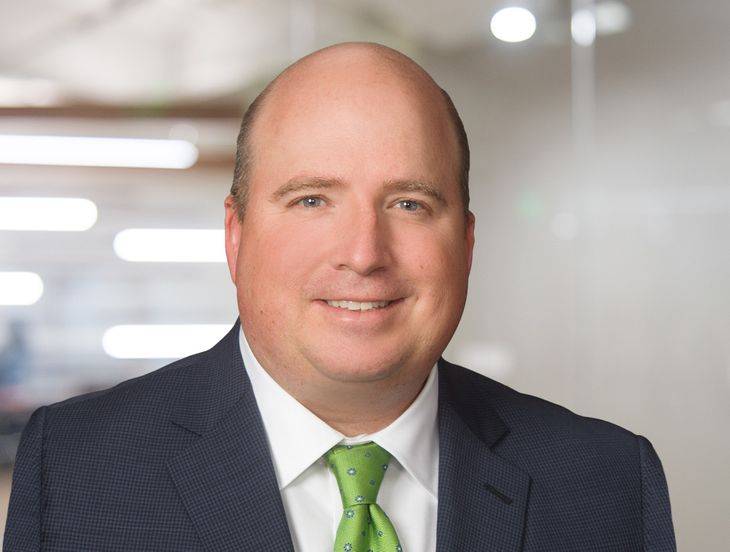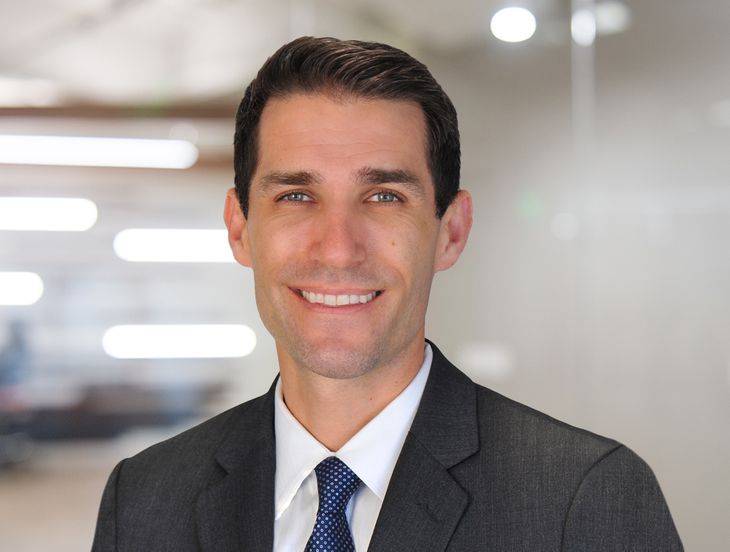The Top 16 Workplace Law Stories from August 2022
Insights
9.06.22
It’s hard to keep up with all the recent changes to labor and employment law. While the law always seems to evolve at a rapid pace, there have been an unprecedented number of changes for the past few years—and this past month was no exception. In fact, there were so many significant developments taking place during the past month that we were once again forced to expand our monthly summary well beyond the typical “Top 10” list. In order to make sure that you stay on top of the latest changes, here is a quick review of the Top 16 stories from last month that all employers need to know about:
- The 10 Most Common Employer Questions After the CDC Loosens its COVID-19 Guidance
The nation’s federal health authorities marked the next chapter of the pandemic on August 11 by significantly loosening many COVID-19 recommendations – including dropping the “six-foot” social distancing rule – thereby lightening employers’ burden to manage the virus. While the CDC’s announcement of revised guidelines comes as a welcome step in the years-long battle against the novel coronavirus, it doesn’t necessarily mean it’s time to drop your guard and pretend that COVID-19 is gone completely. Here are the 10 top questions you should be asking now, along with practical answers to help you navigate this next phase. - Top 10 List – Keep Your Eyes on These California Employment Bills on Governor Newsom’s Desk
Eight months of legislative wrangling and dealmaking have come to an end as the California Legislature just wrapped up work for the year – and now employers across the Golden State turn their eyes to the governor’s office to see which workplace law proposals will become law. While the Legislature adjourned on August 31 and will not return to Sacramento until 2023, the drama is just beginning as Governor Newsom now has until September 30 to sign or veto the bills that have reached his desk. For the first time since the COVID-19 pandemic, this year has been a “return to normal” year for California lawmakers, which means a return to aggressive legislation establishing and expanding workplace protections for employees. So what are the top 10 bills you should be keeping an eye on over the next month? - Fisher Phillips Launches CCPA Resource Center After California Lawmakers Keep Employers on the Hook: 5 Steps to Take Now
When the California Legislature wrapped up its 2022 session on August 31, it did so without having extended an exemption that kept employment data from being part of the California Consumer Privacy Act’s (CCPA) many requirements. That means that employers subject to the CCPA must be prepared to comply with the many data privacy obligations as they relate to employment and job applicant data starting on January 1, 2023. There is much to do and not much time to do it – but there’s good news. To assist employers in meeting this deadline, Fisher Phillips’ Consumer Privacy Team has launched its CCPA Resource Center with a menu of flat-fee starter kits, templates, packets, and other resources to jumpstart the process. We encourage you to start preparing now as compliance can take three to six months to complete – or even longer depending on how much time and resources your business has to dedicate to the effort. What are the five steps you should take now to position yourself for this significant undertaking? - Monkeypox: What, If Anything, Should Employers Do?
Given the recent trauma many employers experienced due to the COVID-19 pandemic, proactive employers are wondering what, if anything, they need to do about the monkeypox virus, which was recently declared a global health emergency. The World Health Organization (WHO) and U.S. Centers for Disease Control and Prevention (CDC) have reported increased cases of monkeypox since May in Europe and North America – where the disease is not regularly found. In fact, California, New York, and Illinois have all declared states of emergency over the current outbreak and the federal government followed suit on August 4. And while monkeypox is not expected to reach pandemic levels, you may want to prepare for a potential outbreak by creating a written infectious disease policy and reviewing other key workplace policies. This Insight addresses a few commonly posed questions to aid employers that are wondering: What is monkeypox and what do we do now? - Federal Appeals Court Rules Gender Dysphoria is a Disability for the First Time: 4 Accommodation Steps for Employers
For the first time, a federal appeals court has joined a growing number of district courts and ruled that those with gender dysphoria – a medical condition where an “incongruence between their gender identity and assigned sex” results in “clinically significant distress” – can be a disability under federal disability discrimination law. The most significant implication for employers covered by this ruling is that you may need to provide reasonable accommodations for gender dysphoria under the Americans with Disabilities Act (ADA) and the Rehabilitation Act. While the decision only directly covers those employers with operations in the Fourth Circuit Court of Appeals (Virginia, North Carolina, South Carolina, Maryland, and West Virginia), various district courts across the country have already reached similar conclusions, with more expected to follow. What do you need to know about the August 16 ruling in Williams v. Kincaid to comply with the law and provide a welcoming work environment to all your employees and applicants? - Employer Can’t Terminate Vulgar Employee Because of Spotty Disciplinary Record – A 5-Step Plan to Avoid the Same Fate
One of the nation’s most powerful federal appeals courts recently ruled that the NLRB was correct when it said a West Virginia-based manufacturing company couldn’t fire a worker for vulgar comments because it failed to consistently apply its workplace disciplinary policies prior to terminating him. Instead, the August 9 decision from the D.C. Circuit Court of Appeals agreed that the termination amounted to an unfair labor practice under the National Labor Relations Act – a federal statute that covers unionized and non-unionized workplaces alike – and therefore ordered the company to compensate and re-hire the worker. This ruling helps draw some distinct lines about what will fly and what won’t cut it when it comes to applying your disciplinary policies in the face of alleged harassing behavior balanced against protected protest activity. What lessons can your organization learn from this decision? This Insight provides you with a five-point plan to put into action to avoid a similar fate. - California Set to Extend COVID-19 Supplemental Paid Sick Leave Until End of Year
Just as thousands of California employers thought COVID-19 Supplemental Paid Sick Leave (SPSL) was about to come to an end, Governor Newsom is set to sign an extension into law – which will push the current expiration date of September 30 to December 31, 2022. However, there is a silver lining for employers as Assembly Bill 152 makes two employer-friendly changes to the SPSL requirements and enacts a relief grant for qualified small businesses to recover expenses related to providing SPSL. Although AB 152 has not officially gone into effect, once it passes the legislature and is signed by Governor Newsom — both of which seem inevitable at this point — it will take immediate effect as a budget trailer bill. What do employers need to know about this significant development? - Women’s Soccer Gets Court Approval on Historic Equal Pay Settlement: 3 Steps for Employers to Strengthen Their Pay Policies
The U.S. women’s national soccer team is close to receiving a $24 million payout now that a federal judge has preliminarily approved the current and former team members’ settlement with the U.S. Soccer Federation. The judge’s August 11 order is the latest development stemming from a lawsuit filed by a class of women athletes in March 2019 alleging gender discrimination in the form of pay inequity. The settlement may be historic, but pay equity claims are not unique to athletes, particularly as pay equity and pay transparency laws gain momentum at the state and local level. Here’s a brief background on the lawsuit, as well as three steps you should consider taking to strengthen your pay policies and practices. - Fourth Time’s the Charm? NLRB Now Set to Change Joint-Employer Standard After Federal Appeals Court Punts Case Back to the Board
A federal appeals court in Washington, D.C. recently issued a decision in the latest installment of the Browning-Ferris joint-employer dispute that should serve as a reminder to employers across the country that change is soon on the horizon. While the Court’s August 1 decision has no immediate consequences for employers, you need to brace your organization for a significantly revised rule that will almost certainly be unforgiving to those employers participating in alternative staffing arrangements. What just happened – and what should you do to prepare? - California’s Fast-Food Industry Faces Devastating Consequences After Lawmakers Pass Union-Backed Bill
California lawmakers just passed the first bill in the nation that aims to enact specific workplace rules and standards for fast-food employees – a move that could have devastating consequences for the industry. The Fast Food Accountability and Standards Recovery Act, also known as the FAST Recovery Act (or AB 257), will establish a 10-member Fast-Food Sector Council tasked with establishing standards on minimum wages, maximum working hours, training, and other working conditions applicable to industry workers. The bill – endorsed by the Service Employees International Union – is now headed to Governor Newsom’s desk where there will be enormous pressure on him to sign it before the September 30 deadline. What are the potential consequences and challenges for the California restaurant industry should AB 257 become law? - OFCCP is Poised to Release Your Confidential Demographic Data: What Can Federal Contractors Do to Protect Your Information?
If you are a federal contractor or first-tier subcontractor, you probably received a notice from the government in August letting you know that it was gearing up to turn over your confidential demographic information to a news organization. The OFCCP told contractors on August 18 that it needed to comply with a Freedom of Information Act (FOIA) request submitted by the Center for Investigative Reporting, meaning it would soon release all demographic data from Type 2 Consolidated EEO-1 Reports filed by federal contractors and first-tier subcontractors between 2016 and 2020. The good news is that you can file an objection in the next few weeks to block this production, but you have to move swiftly – and follow precise procedures to preserve your rights. What do you need to know in order to protect your confidential information, and how can the Fisher Phillips Affirmative Action and Federal Contract Compliance Practice Group assist you? - A Step Toward the Future? Federal Immigration Authorities Considering Remote I-9 Document Review Procedures
Employers may soon have a welcome alternative to the long-standing and often-cumbersome process that requires an in-person inspection of I-9 documents at the time a new worker is onboarded. On August 18, the Department of Homeland Security (DHS) published a proposed Rule that would allow the government to consider possible “alternative options for document examination procedures” for employees, including the option of reviewing employees’ I-9 documents on a remote basis. What do employers need to know about this exciting new development – and when might this brave new future arrive? - An Employer’s FAQ Guide to the Antitrust Battle Between LIV Golfers and the PGA Tour
We bet you’re curious about the legal battle that has erupted between a group of high-profile golfers and the PGA Tour, centering around their relationship with a controversial Saudi-owned golf league and involving allegations of antitrust violations. The war of words turned into full-fledged litigation on August 3, raising the stakes for all those involved – and capturing the attention of businesses across the country. After all, the golfers suing the PGA have invoked antitrust laws, which should be on the minds of all employers these days due to recent developments. What do employers need to know about the dispute – and what might you learn from the allegations? Here is a series of FAQs to help you sort out the issue. - 4 Steps to Stay in Compliance with OFCCP’s New Affirmative Action Compensation Analysis Requirements
When government officials released new guidance explaining how they will evaluate federal contractors’ compliance with new compensation analysis obligations, they calmed the nerves of the contractor community by confirming they would not require employers to turn over attorney-client privileged material. The August 18 release by the Office of Federal Contract Compliance Programs (OFCCP), which revised Directive 2022-01, also provided further guidance on the agency’s authority to access and review contractor compensation analyses during an audit. What do you need to know about this shift in OFCCP’s approach to privileged information – and what are the four steps you should take to stay in compliance with the new affirmative action compensation analysis requirements? - New Jersey Employers Must Update Certain Workplace Postings This Year
New Jersey employers will need to display revised posters advising employees of their rights under the state’s anti-discrimination and family leave laws, according to regulations that were adopted by the New Jersey Division on Civil Rights (DCR) on August 1. Among other new requirements, covered employers must distribute the posters annually to employees. What do you need to know about complying with new workplace posting rules? - California Agricultural Labor Relations Board Issues First-Ever Additional Penalties to Employer for Willful Misclassification
A recent decision by the California Agricultural Labor Relations Board increases the stakes for employers who are found to have willfully misclassified their employees, as the Board deployed a powerful weapon in its arsenal for the very first time – and created another pathway for supervisors to also recover for certain workplace wrongdoings. Though the statute for authorizing penalties for willful misclassification has been around since 2012, the Board actually issued those civil penalties to an agricultural employer for willful misclassification of its crew members for the first time, demonstrating once again the serious consequences of worker misclassification. The Board, which is the agency established to enforce California’s Agricultural Labor Relations Act of 1975 (ALRA), held that it was “not only authorized, but obligated” to issue the penalties even though neither the charging party nor the administrative law judge included an assessment for those penalties in the initial charge or order. What five steps should you consider in order to avoid a similar outcome at your operation?
We will continue to monitor developments related to all aspects of workplace law. Make sure you are subscribed to Fisher Phillips’ Insight system to get the most up-to-date information. If you have questions, contact your Fisher Phillips attorney.
Related People
-
- Rebecca Hause-Schultz
- Partner
-
- Sarah Wieselthier
- Partner
-
- Cheryl L. Behymer
- Senior Counsel
-
- Sheila M. Abron
- Partner
-
- Tatiana S. Chiu
- Associate
-
- Angelica M. Ochoa
- Partner
-
- Steven M. Bernstein
- Regional Managing Partner and Labor Relations Group Co-Chair
-
- Alex G. Desrosiers
- Partner
-
- John M. Polson
- Chairman & Managing Partner
-
- Richard R. Meneghello
- Chief Content Officer
-
- Adam F. Sloustcher
- Regional Managing Partner
-
- Kathleen McLeod Caminiti
- Partner and Co-Chair, Wage and Hour Practice Group
-
- Jack O’Connor
- Associate
-
- Courtney Leyes
- Partner
-
- Marilyn Higdon
- Associate
-
- Myra K. Creighton
- Partner
-
- R. Bryan Holbrook
- Partner
-
- Patrick W. Dennison
- Partner
-
- Samantha J. Monsees
- Partner
-
- Benjamin M. Ebbink
- Partner
-
- Alden J. Parker
- Regional Managing Partner
-
- Anthony Isola
- Partner
-
- Usama Kahf, CIPP/US
- Partner
Service Focus
- Wage and Hour
- Counseling and Advice
- Government Contracting, Compliance, and Reporting
- Pay Equity and Transparency
- Labor Relations
- Immigration
- Litigation and Trials
- Employment Discrimination and Harassment
- Employee Leaves and Accommodations
- Workplace Safety and Catastrophe Management
- Consumer Privacy Team
- Privacy and Cyber























